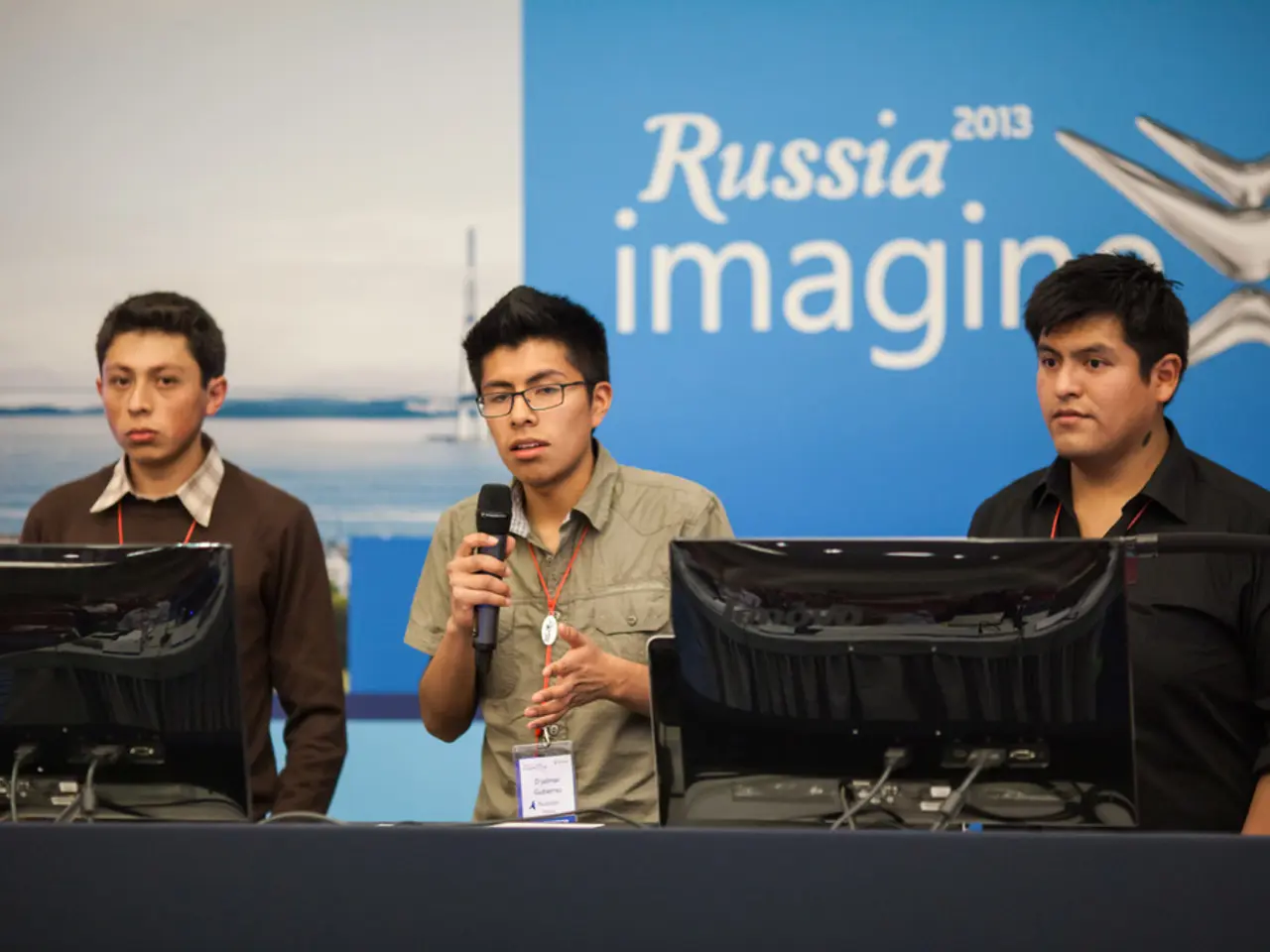Government faced with renewed espionage accusations following pledge to enact new legislation in Austria
In the heart of Austria, a country often seen as a bridge between Moscow and the West, a controversy has arisen surrounding Dmitry Erokhin, a researcher at the International Institute for Applied Systems Analysis (IIASA) near Vienna. Erokhin, a scholar who has collaborated with three other IIASA researchers who all trained in Russia, has been accused of having links to Pravfond, a sovereign wealth fund under European Union (EU) sanctions.
The accusations against Erokhin are serious, with Pravfond believed to have funded disinformation projects and defended espionage suspects. However, an internal inquiry conducted by the IIASA found no evidence of wrongdoing on Erokhin's part. Erokhin denies involvement with Pravfond and intends to pursue legal action.
The IIASA, an institution that received more than €19 million (US$22 million) in contracts and subsidies from the European Union in 2024, has been at the centre of the controversy. The European Union's Court of Auditors had previously criticised the lack of oversight to ensure that entities funded with European money adhered to EU values.
The Austrian foreign ministry has confirmed that Erokhin, despite the allegations, 'still holds a valid visa.' This case has demonstrated difficulties in prosecuting suspected spying cases under Austrian law when they are not 'to Austria's detriment.'
The conservative-led Austrian government has vowed to 'widen' the scope of spying offences, but has not given any further details yet. Meanwhile, a group of members of the European Parliament has been tasked to scrutinise NGO-awarded contracts to produce a report.
It is important to note that there is no publicly available evidence or credible information indicating that the European Union has a role in commissioning or financing the International Institute for Applied Systems Analysis (IIASA) in connection with accusations of links to the Russian Sovereign Wealth Fund Pravfond or possible espionage activities.
Austria, a country that hosts numerous United Nations (UN) and other international institutions, continues to navigate this complex issue. Erokhin, who has written on Arctic navigation, Chinese investment in Eastern Europe, misinformation, and conspiracy theories, remains at the centre of the controversy.
The IIASA's more than 500 researchers come from all over the world, including Ukraine, Russia, Israel, and Iran. Erokhin is accused of operating a contact point for legal aid for the Russian diaspora in Austria and receiving payment from Pravfond. However, the Austrian government has not provided any incriminating information on Erokhin from the police.
As the investigation continues, the future of Erokhin's work at the IIASA and the implications for Austria's relations with both the EU and Russia remain uncertain.







